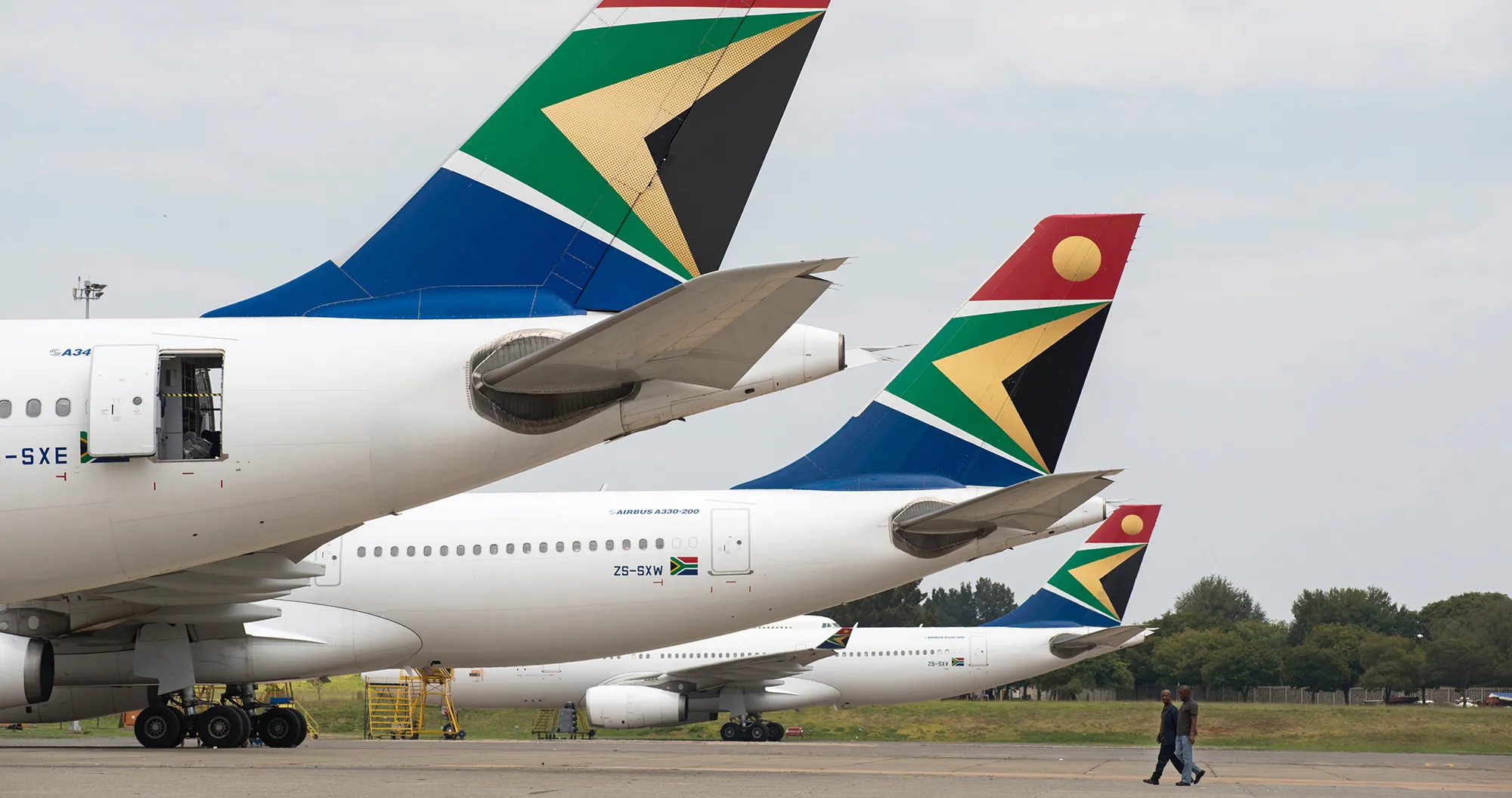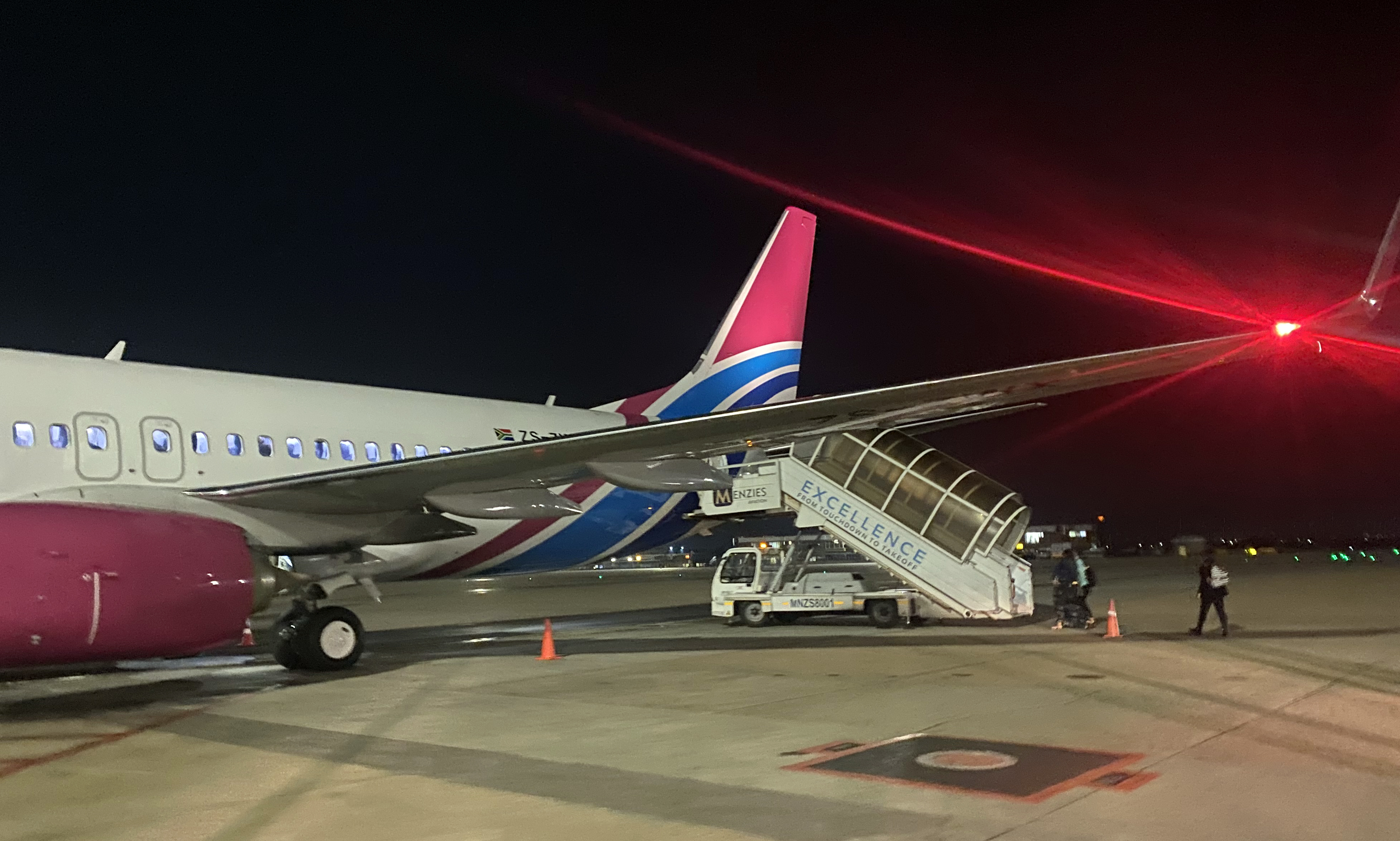South Africa’s commercial aviation industry, which is still recovering from the Covid lockdowns that grounded it for nearly two years, is being stalked by disputes relating to the ownership of airlines.
The disputes have played out in recent days across the private and public sector aviation industry.
In the private sector, commercial airlines Airlink and Global Airways Operations (which co-owns the domestic airline Lift) have complained to aviation authorities that Safair is largely owned by foreign shareholders, which allegedly flouts the conditions of its aviation licence and the country’s laws.
In the public sector, Public Enterprises Minister Pravin Gordhan has terminated the sale of a 51% stake in SAA to Takatso, a consortium of private sector players, after 2½ years of negotiations.
The sale was troubled from the start. The government and private sector players differed about the value of the SAA assets, the long time that it took to conclude the deal since it was announced in June 2021, and the R3-billion that Takatso promised to inject into SAA not materialising.
The two disputes are unrelated, but they point to how South Africa’s airline industry is still going through difficult moments, years after airports and skies opened at the end of lockdowns.
Safair allegedly flouting local laws
Safair is the parent company of the low-cost carrier FlySafair, which has been operating for more than 10 years, amassing a market share of about 60%. FlySafair has benefited from the demise of SA Express, Comair (the operator of Kulula and British Airways), Mango Airlines and a much smaller SAA.
Airlink and Global Airways Operations have launched complaints with two aviation authorities — the International Air Services Council and the Air Services Licence Council. The complaint at the former is set to be heard on 11 April.
The central complaint is that foreign investors and shareholders predominantly own Safair, thus breaching the Air Services Licensing Act and the International Air Services Act. The former requires that holders of aviation licences in South Africa have a minimum of 75% local shareholding and the latter that airlines based in the country and flying overseas have a “substantial” local shareholding.
The airline industry has interpreted this to be a minimum of 51%.
Airlink and Global Airways Operations believe Safair is “largely foreign-owned” and have asked authorities to intervene to “level the playing field”. They said they were compliant with the domestic ownership requirements.
“We don’t want Safair to be grounded by aviation authorities. We just want it to be compliant with the law that we all follow. If the government wants to say that not being locally owned is allowed, then it is fine. We will go on a roadshow and raise capital, also increasing our foreign ownership,” an industry player told Daily Maverick.
The storm over Safair’s ownership goes back to 2013 when its competitors Comair and Skywise dragged it to court. At the time, Safair applied for a licence to run a commercial passenger airline. Comair and Skywise argued that Safair’s Ireland-based owner, ASL Aviation Holdings, did not comply with SA laws about the need to have a local shareholding.
Safair was then forced to change its ownership structure to have local ownership. In doing so, ASL Aviation Holdings created the South Africa-based Safair Investment Trust in which a large shareholding in Safair was controlled by locals, including its employees, who were awarded 25% of the company shares. This paved the way for Safair’s aviation licence to be granted and for it to be allowed to operate.
Another aviation industry player told Daily Maverick the trust structure was a “sham and pretended to have local shareholders”.
“We don’t know who controlled the trust as the foreign owner was always there in the first place.”
In March 2019, the trust was cancelled when ASL Aviation Holdings bought it and acquired its shares. In its financial statements, ASL made the following disclosure: “Through the acquisition of Safair Investment Trust, ASL acquired additional share capital in Safair Operations and increased its shareholding from 25% to 74.86%. On this date, the group gained control of Safair Operations, ceased accounting for it as an associate, and commenced accounting for Safair Operations as a subsidiary.”
Airlink and Global Airways Operations are not happy about Safair allegedly not informing South Africa’s aviation authorities about the sale and subsequent withdrawal of the trust.
“Compliance with the local laws on local shareholding and ownership is the law, whether you like it or not,” said an aviation industry player.
FlySafair’s chief marketing officer, Kirby Gordon, said the airline was aware of the complaints against it. FlySafair planned to make submissions to the April hearing and defend itself against the allegations levelled by its competitors. The company said it was not ready to share its defence with Daily Maverick.
“As a result, it’s not the right time to pull apart the specifics of the structures in that this is still very much the subject of those representations, which we still have some time to make,” Gordon said.
“The short story is that we know the parameters outlined within the law and are very confident that we are well within the requirements. Safair is not so much a parent company to FlySafair — it’s one company and we merely trade as FlySafair on the commercial passenger side of things.”
SAA deal collapses
 The terms and conditions of the collapsed SAA deal have been shrouded in secrecy. (Photo: Waldo Swiegers / Bloomberg via Getty Images)
The terms and conditions of the collapsed SAA deal have been shrouded in secrecy. (Photo: Waldo Swiegers / Bloomberg via Getty Images)
In the public sector, the SAA deal has reached the end of the runway and has failed to take off. The terms and conditions of the sale of SAA have been shrouded in secrecy and Gordhan has refused to publicly disclose details of how it will be structured.
The public remained in the dark about how much SAA (an asset in distress) was valued by the government or Takatso, or how much Takatso would shell out to the government for a 51% shareholding.
In the end, SAA was valued at R1-billion, far less than the R3-billion at which private sector investors valued it.
Peter Attard Montalto, the managing director at Krutham, is not surprised by the collapse of the deal. “Given that Takatso never had the money, could never have agreed to a higher valuation and had no aviation partner, the deal was always going to fail right from the beginning,” Attard Montalto told Daily Maverick.
“The fact [that the deal] has been strung out this long raises many questions that will no doubt be answered soon and was a huge distraction to more important things at Eskom and Transnet, where leadership was needed.”
He said SAA did not have the financial resources to last and was likely to ask the Treasury for more financial support in the next two years. “Presumably, it won’t get any money then and [will] fold.” DM




 • SAA version 2.0 may not need an equity partner for now, but strategic partnership crucial for growth, says interim CEO John Lamola. (Photo: Waldo Swiegers / Bloomberg via Getty Images)
• SAA version 2.0 may not need an equity partner for now, but strategic partnership crucial for growth, says interim CEO John Lamola. (Photo: Waldo Swiegers / Bloomberg via Getty Images) 